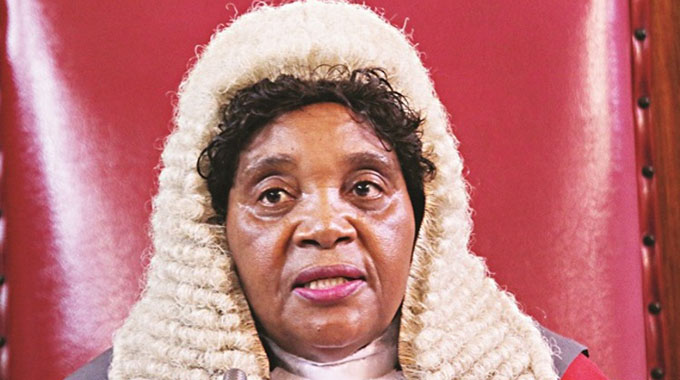By Nyashadzashe Ndoro | Nehanda Courts|
President Emmerson Mnangagwa yesterday appointed five Constitutional Court (ConCourt) judges who have now been sworn in today by Acting Chief Justice Elizabeth Gwaunza.

Mnangagwa appointed, Justice Rita Makarau, Justice Paddington Garwe, Justice Bharat Patel, Justice Ben Hlatshwayo and Justice Anne-Marie Gorowa as ConCourt judges.
All these judges have been acting ConCourt judges and they were cited as respondents in the court challenge being launched by civil society against the Constitutional Amendment Number 2 Act.
This comes barely a week after Mnangagwa signed Constitutional Amendment No.2 Bill into law and gave himself unfettered powers to directly appoint senior judges, including the Chief Justice without having them going through interviews.
Chief Justice Luke Malaba who has been viewed as a Mnangagwa loyalist after presiding over the disputed 2018 elections ConCourt case, is perceived to be a beneficiary of the new law considering that, as he turned 70 years on Saturday, his term was set to expire before Mnangagwa extended it with five more years. The decision was, however, thrown away by the High Court.
But the civil society and opposition political parties are planning to launch a court challenge against the controversial amendment with law experts like Tendai Biti and Thabani Mpofu vowing to challenge its legality at ConCourt.
UK based law expert Alex Magaisa said the letter that announced the appointment of judges to the ConCourt was “odd” and “vague.” He added this was done to make sure “it is not possible to determine the law under which they are being appointed.” It says the President has “approved” the appointments “at the instance” of the Acting Chief Justice.
He added “The letter is coming from the Judicial Service Commission. The “approval” bit is perplexing. It’s either the President appoints or he doesn’t. Whether before or after Amendment No. 2, he is the appointing authority. If they are acting judges, his approval is irrelevant.
“True the judges take their oath before the Chief Justice but it is unclear whether they are being appointed under the old procedure when they were interviewed last September or as amended by Amendment No. 2. But does it make any difference to the contentious cases? None.
“There is no difference because all the judges are parties in the proceedings concerning Amendment No.2. They are still conflicted and the fact that they are being sworn in doesn’t change their station. If you have a brown cow and you paint it black, it’s still the same cow!” he added.
Signing of the Bill by Mnangagwa effectively changed the constitution, which was adopted by 95% of the 3,3 million people who voted in a referendum in March 2013.
Last year, exiled former cabinet minister Jonathan Moyo raised alarm over a judicial scandal in the selection of the five judges to the ConCourt bench.
He posted on Twitter 13 October 2020 after the Judicial Service Commission (JSC) interviewed the 12 candidates, saying Mnangagwa rejected High Court Justice Happias Zhou’s bid for the ConCourt bench despite him coming third out of five candidates in interviews.
Last weekend, Justice Zhou ruled former Chief Justice Malaba’s five-year extension term of office by Mnangagwa as was invalid.
Justice Minister Ziyambi Ziyambi expressed displeasure with the judgement and took particular aim at Justice Zhou saying he was against Mnangagwa’s administration.
The ministry has since declared its plans to appeal against the judgement at the ConCourt but the recently appointed judges may not preside over the matter because they are conflicted.






